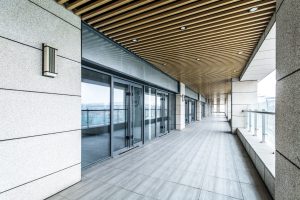 The hectic San Jose real estate market can present challenges for any landlord or tenant. With complicated commercial lease agreements, the stakes are often higher, and the legal issues are more complicated. The San Jose real estate attorneys at Structure Law Group are here to help business owners from all industries understand commercial leases. What follows are some of the most common issues that arise in negotiating lease terms.
The hectic San Jose real estate market can present challenges for any landlord or tenant. With complicated commercial lease agreements, the stakes are often higher, and the legal issues are more complicated. The San Jose real estate attorneys at Structure Law Group are here to help business owners from all industries understand commercial leases. What follows are some of the most common issues that arise in negotiating lease terms.
Price Terms
Unlike residential leases, a commercial lease is not always paid at a fixed monthly rate. The rate can vary depending on market conditions. For example, a tenant might need a lower rate during the off-season when business is slow. Commercial landlords may be willing to negotiate variable rates depending on market conditions, time of year, supply chain disruptions, and other events. Some commercial leases are not paid at a fixed rate at all. Instead, the landlord will agree to take a set percentage of the tenant’s retail sales or a base rent plus the commission of sales. All of these price terms can be negotiated between the landlord and tenant. All of these terms are also subject to the California Civil Code, which prevents rent control on commercial properties. A San Jose real estate lawyer can help either party determine what pricing structure will best meet their needs and goals.
Terms of Property Use
Commercial leases are far more detailed than residential leases. As a result, the use of the property is usually clearly defined, and a tenant will not simply agree to “retail” or “office” or “warehouse” use. There may be quiet hours set by local zoning ordinances or municipal codes. A landlord might allow a retail space to be used for only certain business types. For example, many landlords are hesitant to lease to new marijuana businesses, given the unsettled state of the law and existing conflicts between state and federal law on marijuana enforcement.
Even the most basic alterations to the property can be covered in a lease agreement. While tenants are generally free to install structures that can be removed without damage at the end of the lease, a landlord might wish to limit this right. The landlord might also agree to expand the tenant’s right to modify the property to suit their business. Here too, a real estate lawyer in San Jose can help both tenants and landlords agree to terms of use that work for both parties.
Special Considerations in Commercial Leases
Due to the unique nature of commercial property, there are many unique provisions that can apply to a commercial lease agreement. Many landlords will request that retail tenants agree not to “go dark.” This provision prevents the tenant from closing their business altogether, which in turn reduces the value of nearby commercial properties. Tenants who violate a “going dark” clause may have to pay a set amount to cover the landlord’s financial losses. Alternatively, a tenant may negotiate for the right to “go dark” without violating the agreement, provided rent is still paid. This example is just one of many unique provisions that can apply to a commercial lease.
The Right San Jose Real Estate Lawyers for All Commercial Leases
The experienced San Jose real estate lawyers at Structure Law Group have years of experience handling all types of commercial lease agreements. Call (408) 441-7500 to schedule a consultation.
 Business Lawyers Blog
Business Lawyers Blog

